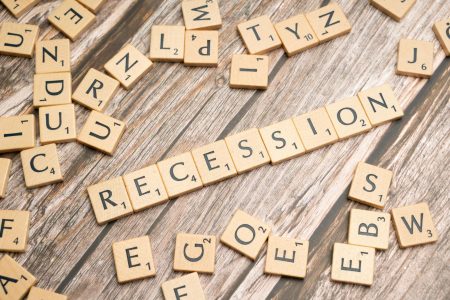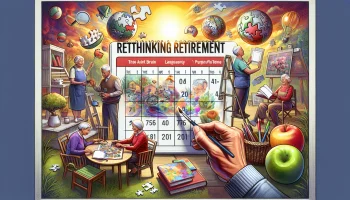A 401 (k) account is an instrumental part of your financial future. Because of this, it’s strongly advised that you never touch these founds. What’s more, if you make withdrawals before the age of 59 ½, then you can expect a 10 percent penalty from Uncle Sam.
Nevertheless, there are times when you should use your 401(k). In fact, even the IRS is well aware of these financial hardships. As a result, there are specific situations when you can access your retirement plan before age 59 ½ without being penalized.
With that in mind, here are 10 good reasons to use your 401 (k) right now.
Table of Contents
Toggle1. You’ve changed jobs.
Did you know that the average American worker has 12 jobs throughout a lifetime? Even if you don’t switch jobs that frequently, there’s still a very good possibility that you will change jobs at some point. And, that means you have several options with your 401(k).
- Let the assets in your former employer’s 401(k) plan grow tax-free if allowed.
- Changing jobs allows you to roll over your old 401(k) account assets to your new employer’s plan — if you’re permitted.
- Consider rolling over your old 401(k) into an individual retirement account (IRA) to increase your retirement investment options. As a result, you’ll both maintain tax benefits and have more flexibility in accessing your savings.
- Cash-out your assets. If you need to tap into these assets immediately, this is your best option. It is important to understand that cashing out your old 401(k) can have considerable financial implications. In addition to the fact that those funds are considered taxable income and subject to an immediate tax withholding, you may also face a 10% penalty for early withdrawals if you cash out before turning 59 ½ withdrawals will also kill any tax-deferred growth you might have previously enjoyed.
It’s also worth noting that you can use most of the above if you’ve retired or been terminated from your job. If you’re laid off or fired, you’re able to transfer the money from your 401k to an IRA without having to pay any income taxes.
2. Unreimbursed medical expenses.
Looking for a way to pay for out-of-pocket deductible medical expenses? Well, if these medical bills exceed 7.5% of your adjusted gross income (AGI), the 10% tax penalty is waived
For the hardship withdrawal to be exempt from the fee, it must be made in the same calendar year as the medical treatment. Since 2019, your elective contributions can no longer be subtracted from the distributions you took in the past.
3. Permanent disability.
In the event that you become “totally and permanently” disabled, you will be able to access your retirement account earlier than planned. In this situation, the government allows the withdrawal of funds before age 59 ½ without penalizing you.
However, you must demonstrate that you are incapable of working. Usually, disability payments from Social Security or an insurance carrier will suffice, though you will likely need a doctor’s note confirming your disability.
Also, those who are permanently disabled may need their 401(k) accounts even more than the average investor. As such, depleting your 401(k) should be a last resort — even if you can no longer work.
4. Purchasing your first home.
Although you can use money from your 401(k) to make a down payment, you will pay a penalty of 10 percent.
Tax-free withdrawals from your IRA are possible, though. These withdrawals are not just available for first-time IRA holders. However, the homebuyer must not own a home in the last two years.
Furthermore, you can withdraw from your home-buying account more than once without incurring penalties, but there is a lifetime limit of $10,000. An example would be two withdrawals of $5,000.
A 401(k) can be more challenging to use for a down payment though.
Why? Because the participant must use the loan provision before resorting to hardship withdrawal if the 401(k) has both a loan provision and a hardship withdrawal provision.
Also, since you’re a homeowner, just know that you can use your 401 (k) to pay for certain repairs to your principal residence. For instance, if you’re an area designated as a diseaster zone, your retirement money be used to repair for any damages without being penalized.
5. Expenses to prevent being foreclosed on or evicted.
401(k) hardship withdrawals can also be made when you have an immediate need for money that cannot be met by any other means. And, this certainly falls into this category.
Although the IRS allows 401(k) hardship withdrawals for preventing eviction, such as from an apartment, a withdrawal for a security deposit does not qualify.
Also, you will need a notice of Eviction or Foreclosure in writing from the landlord or mortgage holder. The amount that must be paid in arrears to avoid eviction or foreclosure should also be included.
6. College tuition and education fees for the next 12 months.
If your 401(k) plan permits hardship withdrawals, you can generally make withdrawals to cover higher education expenses. FYI, the 10 percent penalty will apply.
However, IRA withdrawals for qualified expenses are not subject to a penalty.
Whether it is for yourself, your spouse, your children, grandchildren, or your immediate family, a qualified plan can cover higher education expenses. For post-secondary education, this usually includes room and board, books, tuition, supplies, and supplies.
7. 72(t) distributions.
Taking a 72t early distribution is an option if none of the exceptions above applies to your particular circumstances. It’s named for the tax code that allows you to take some payments annually — aka substantially equal periodic payments. Payment amounts are determined by the size of your retirement account and your age.
After you begin taking periodic payments, you must continue to do so for five years or until you turn 59 ½ years old, whichever is longer. Moreover, even if you do not need the money, you cannot take more or less than the calculated distribution. So, tread lightly if you go this route.
8. Unpaid taxes.
Unless you pay your tax bill in full by April 15, the IRS will charge interest on any outstanding balance. Typical interest rates are 5% or 6% per year. Late-payment penalties can also add up to 25%, with a maximum of 0.5% per month.
As a result, accessing the funds in your 401(k) to pay off an IRS levy may seem like a good idea, and if you have nowhere else to turn, it can be a great option. In order to avoid penalties, you must know a few things.
You will need to pay taxes and possibly a penalty if you withdraw from your 401(k) before 59 1 2 years of age. If you are over the age of 59 ½ at the time of withdrawal or your employer permits 401(k) loans, you may be able to use your 401(k) to pay off an IRS levy without being penalized.
9. Burial or funeral expenses.
While inevitalbe, this isn’t a topic that most of us think about. As a consequence, you might not have enough set aside to cover this expense. In case you’re curious, the average funeral costs between $7,000 and $12,000.
However, taking money out of your 401k to pay for funeral expenses is an option.
To find out if you can withdraw your 401k due to hardship, contact your 401k administrator. Again, in emergency situations, some 401k plans permit hardship withdrawals. You may request a hardship withdrawal form from your plan administrator if you are eligible for hardship withdrawals.
10. The Rule of 55.
In some instances, people who lose their jobs or retire at 55 but not yet 59 ½, can take distributions from their 401(k) without incurring an early withdrawal penalty of 10%. A former employee can receive a penalty-free distribution from the qualified plan after being separated from their employer.
Distributions made after separation from your company’s service are not subject to the early withdrawal tax penalty if the separation occurred during or after the calendar year in which the participant turned age 55.
The rule applies only to your 401(k) at your former employer, not to those at any previous employers, nor to your individual retirement accounts (IRAs). But, your other accounts will not be eligible for penalty-free distributions until you reach age 59 ½.
The funds in your current 401(k) are eligible for penalty-free distributions, however, if you transfer your IRA funds from your previous employer before your retirement at age 55. Additionally, you should check with your retirement plan administrator since not all defined contribution plans allow withdrawals before 59 ½.
Frequently Asked Questions About Using Your 401(k)?
Do you actually need the money now?
When it comes to your 401(k), you’re actually “paying it forward” as opposed to putting money “away.” As such, if you’re young and don’t have financial responsibilities like a home or family, you may have the financially flexibility to replenish your 401(k). Those things may or may not be true for you in the future.
In short, continue to pay it forward. Be careful not to let lifestyle inflation place a financial burden on your future self. This means not using a 401(k) loan for elective expenses like entertainment or gifts. Your retirement savings would be better left fully invested and you should find another source of income.
In contrast to what we’ve talked about so far, borrowing from your 401(k) might be beneficial long term and might even help your finances in general. You may be able to lower your interest payments to lenders if you use a 401(k) loan to pay off high-interest debt, like credit cards. The best part is that 401(k) loans aren’t subject to a credit check, and they don’t appear on your credit report as debt.
Can I cash out my 401(k) while still employed?
While still employed, you can’t cash out your 401k account, since the company that sponsors the 401k does not permit this. It is possible to take out a loan against it, but the money can’t be simply withdrawn.
As mentioned above, if you resign or get fired, you can withdraw the money from your account, but again, there are costs involved that should make you reconsider your decision. The 10% early withdrawal penalty and regular income tax will apply. For tax purposes, your employer must also withhold 20% of your cash out.
Penalties don’t apply in all cases, but there are a few exceptions:
- You’re older than 55
- The disability you suffer is permanent
- Your medical expenses need to exceed 10% of your adjusted gross income in order to receive this money
- You plan to cash out over the course of your life through a series of substantially equal payments
- You have been called to active duty as a qualified military reservist
What’s better: 401(k) loans or 401(k) distributions?
In some cases, it can be difficult to distinguish between 401(k) loans and withdrawals. But, there are minor differences to be aware of.
401(k) withdrawals.
You may be eligible for a traditional withdrawal, such as a hardship withdrawal, depending on your situation. In addition to medical expenses and foreclosure, IRS considers tuition, funeral, and purchase and repair of primary residence costs (excluding mortgage payments) as immediate and heavy financial needs. Also, some plans allow for non-hardship withdrawals, but all are unique, so ask your employer for more information.
Withdrawals have the advantage that no repayment is required.
A hardship withdrawal from a 401(k) account will not give you the full amount since ordinary income is taxed on withdrawals from these accounts. Unless you qualify for one of the IRS exceptions, early withdrawals before age 59 ½ are subject to a 10% penalty.
401(k) loans.
You borrow money from your retirement savings account when you take out a 401(k) loan. Within a 12-month period, you may be able to withdraw as much as 50% of your retirement savings, up to a maximum of $50,000, depending on what your employer’s plan allows.
In most cases, you will need to pay back your loan. As well as interest within 5 years from the date you took it out. You are also limited in the number of loans outstanding from your plan by its rules. To take out a loan, you may also need your spouse’s or domestic partner’s consent.
When you take a loan from your 401(k), no taxes or penalties are imposed, which is a major advantage. As an added bonus, the loan interest goes into your retirement account. Furthermore, defaulted 401(k) loans do not affect your credit score since they are not reported to credit bureaus if you miss a payment or default.
Unfortunately, if you leave your job, you might have to reimburse your loan in full within a very short period of time. Defaults will result in both taxes and a 10% penalty if you are under 59 ½ if you are unable to repay the loan for any reason. Also, you could lose out on potential growth by not investing the money you borrow in a tax-favored account, so you could miss out on more than what you would have to pay in interest.
If I stop making contributions to my 401(k), what happens?
You would be better served to simply suspend contributions to a 401k instead of stopping them. Your retirement fund will slow down while you are suspended, but it will grow regardless. By doing so, the temptation to withdraw all funds will be reduced. And, that means retirement savings will be less likely to be wiped out.
What are my alternatives?
The following alternatives are worth considering:
- If the expense is a qualified medical expense, you can use HSA savings
- Access your emergency savings
- Credit card balances with a higher interest rate can be transferred to a new card with a lower interest rate
- You can use other savings accounts or a brokerage account to save for retirement
- An equity line of credit or a personal loan can be used
- Tax- and penalty-free withdrawals from a Roth IRA: contributions can be withdrawn at any time














